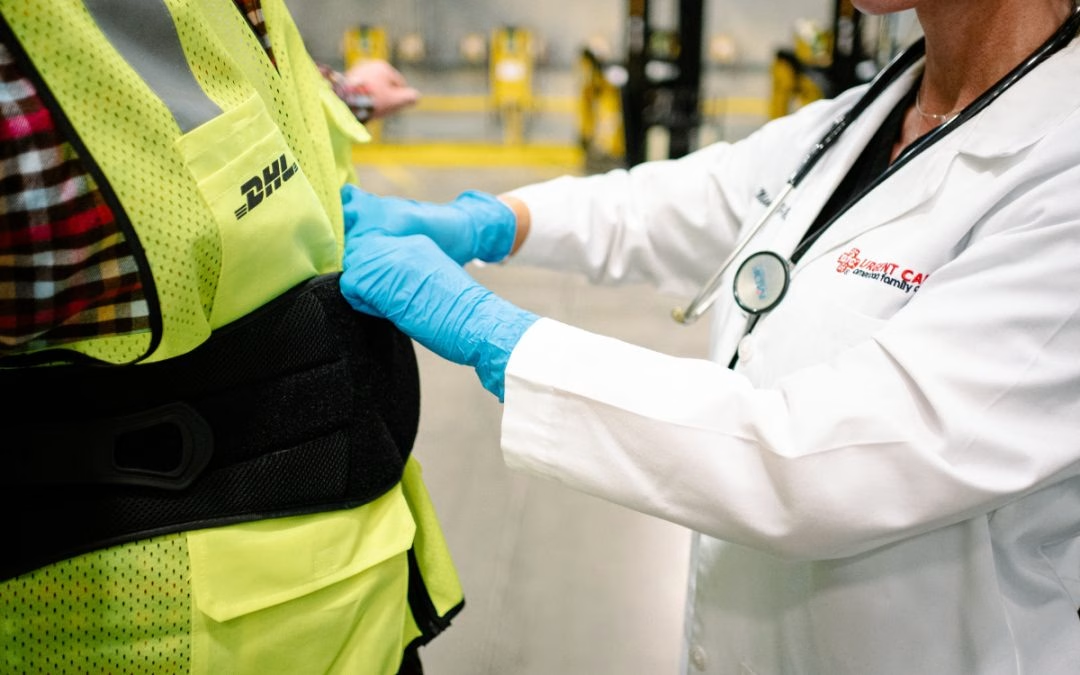
If you’ve ever indulged in a delicious meal, only to feel queasy later, you know how unpredictable food poisoning can be. While Huntersville offers plenty of fantastic dining options like Duckworth’s Grill & Taphouse, it’s essential to recognize when a meal may have led to something more concerning—like foodborne illness. Understanding the symptoms, causes, and treatment options for food poisoning can help you act quickly and appropriately.
What Is Food Poisoning?
Food poisoning is an illness caused by consuming food or beverages contaminated with harmful bacteria, viruses, parasites, or toxins. Contaminants can enter food during production, handling, or storage. Common culprits include Salmonella, E. coli, norovirus, and Listeria. Symptoms can range from mild to severe and typically appear within hours to a few days after consumption.
Recognizing the Symptoms of Food Poisoning
Food poisoning symptoms can vary depending on the contaminant but generally fall into three categories:
Gastrointestinal Distress
- Nausea and vomiting: These are often the first indicators of food poisoning.
- Diarrhea: Watery or loose stools are a common symptom.
- Abdominal cramps: Sharp or persistent stomach pain may occur.
Systemic Symptoms
- Fever: A mild to high fever can indicate the body is fighting off an infection.
- Fatigue: Feeling unusually tired or weak is another potential symptom.
- Muscle aches: Body aches may accompany other symptoms, especially with viral contaminants.
Digestive Upset
- Loss of appetite: Feeling uninterested in food is common.
- Bloating and gas: Digestive discomfort may occur as the body processes the contaminated food.
Common Causes of Food Poisoning
Understanding how food poisoning happens can help you take preventive measures:
- Improperly cooked or stored food: Undercooked meat, seafood, or poultry can harbor bacteria, while improper storage can lead to contamination.
- Cross-contamination: Using the same cutting board or utensils for raw and cooked foods can transfer bacteria.
- Unwashed produce: Fruits and vegetables exposed to contaminated water or soil can carry harmful pathogens.
- Contaminated water: Drinking or cooking with unclean water can introduce viruses or parasites.
Treating Food Poisoning at Home
For most cases of food poisoning, rest and hydration are key to recovery. Here are some tips:
- Stay hydrated: Vomiting and diarrhea can lead to dehydration. Sip on water, oral rehydration solutions, or electrolyte drinks.
- Rest: Allow your body time to recover by getting plenty of sleep and avoiding strenuous activities.
- Eat bland foods: Gradually reintroduce easily digestible foods like rice, bananas, and toast once your stomach settles.
- Avoid irritants: Steer clear of dairy, caffeine, alcohol, and fatty or spicy foods until you feel better.
When to Seek Medical Care at AFC Huntersville
While most food poisoning cases resolve on their own, some symptoms warrant professional medical attention:
Persistent or Severe Symptoms
Vomiting or diarrhea lasting more than two days can indicate dehydration or a more severe condition.
Severe abdominal pain may signal complications or require further evaluation.
Dehydration
Look for signs such as dry mouth, extreme thirst, infrequent urination, or dark-colored urine. Severe dehydration can lead to complications if untreated.
High Fever
A temperature exceeding 101.5°F (38.6°C) may indicate a more serious infection requiring medical intervention.
Special Populations
Pregnant women, young children, older adults, and those with weakened immune systems are at higher risk for complications and should seek medical care promptly.
At AFC Huntersville, our experienced healthcare professionals can assess your symptoms and provide appropriate care, including hydration therapy, diagnostic testing, and medications to alleviate discomfort.
Risks of Ignoring Symptoms
Ignoring food poisoning symptoms can lead to complications, including:
- Dehydration: Prolonged vomiting or diarrhea can result in electrolyte imbalances and other health issues.
- Severe infections: Certain bacteria like Listeria and E. coli can cause long-term damage or systemic infections if untreated.
- Organ damage: In rare cases, untreated foodborne illnesses can lead to kidney failure or other severe outcomes.
Why Choose AFC Huntersville?
When you’re not feeling well, fast and reliable care makes all the difference. AFC Huntersville offers:
Quick Access to Care
With shorter wait times than traditional emergency rooms, our clinic ensures you receive timely medical attention without the long delays.
Affordable Solutions
Urgent care visits are often more cost-effective than emergency room visits, saving you time and money while receiving quality care.
Comprehensive Services
On-site diagnostic testing allows our team to quickly identify the cause of your symptoms and create a personalized treatment plan. From rehydration therapies to symptom management, we’re equipped to handle a wide range of food poisoning cases.
Food poisoning is an unpleasant but common health concern that can usually be managed at home with rest and hydration. However, severe or prolonged symptoms require prompt medical care to prevent complications. At AFC Huntersville, we’re here to help you recover quickly and safely with compassionate, expert care tailored to your needs.
If you or a loved one are experiencing symptoms of food poisoning, don’t wait. Visit our conveniently located clinic in Huntersville today to receive the care you need and get back to enjoying the wonderful food options our area has to offer!


